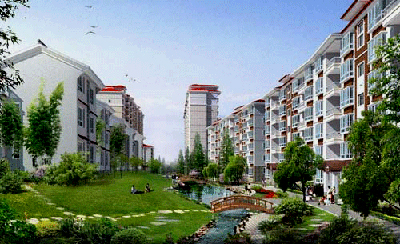All new buildings in the country were designed for energy efficiency by property developers - but only half have been found to meet national energy conservation standards.
The sidestepping of energy conservation requirements by property developers poses a threat to meeting the overall green goal, in which the construction sector is expected to contribute to 30 percent of total energy savings.
"The findings are alarming. More comprehensive measures are needed to achieve the national goal," Song Chunhua, president of the China Real Estate Association, said at an energy-saving forum held in Beijing yesterday.
The Ministry of Construction discovered in recent nationwide inspections that only 53 percent of projects under construction are turning energy-saving promises into action, said Song.
Nearly all of them had pledged at design stage that they would meet national standards on energy saving.
"They changed their minds because of increasing costs," said Song. "They are still building new energy guzzlers."
Considering more than 99 percent of the country's 40 billion sq m of old buildings are not energy-efficient, Song said: "This will worsen the situation."
On average, about 2 billion sq m of new buildings are built each year.
Song said the implementation of energy-saving standards increase property costs by 5-10 percent; and not the average of 17 percent widely quoted by developers.
Energy consumption will be reduced 40 percent nationwide on average if the standards are fully implemented. In addition, this will help ease energy shortages and contribute to combating climate change.
The government last year announced compulsory energy saving standards for public and office buildings, which will soon be extended to housing.
Song yesterday also urged developers to build more small- and medium-sized apartments to meet the challenges of a rising population and rapid urbanization.
He said there is plenty of room to explore to make small apartments more comfortable. "A 90-square-meter apartment is enough for a nuclear family."
He urged the government to implement energy saving schemes and put caps on apartment space.
(China Daily January 14, 2008)






